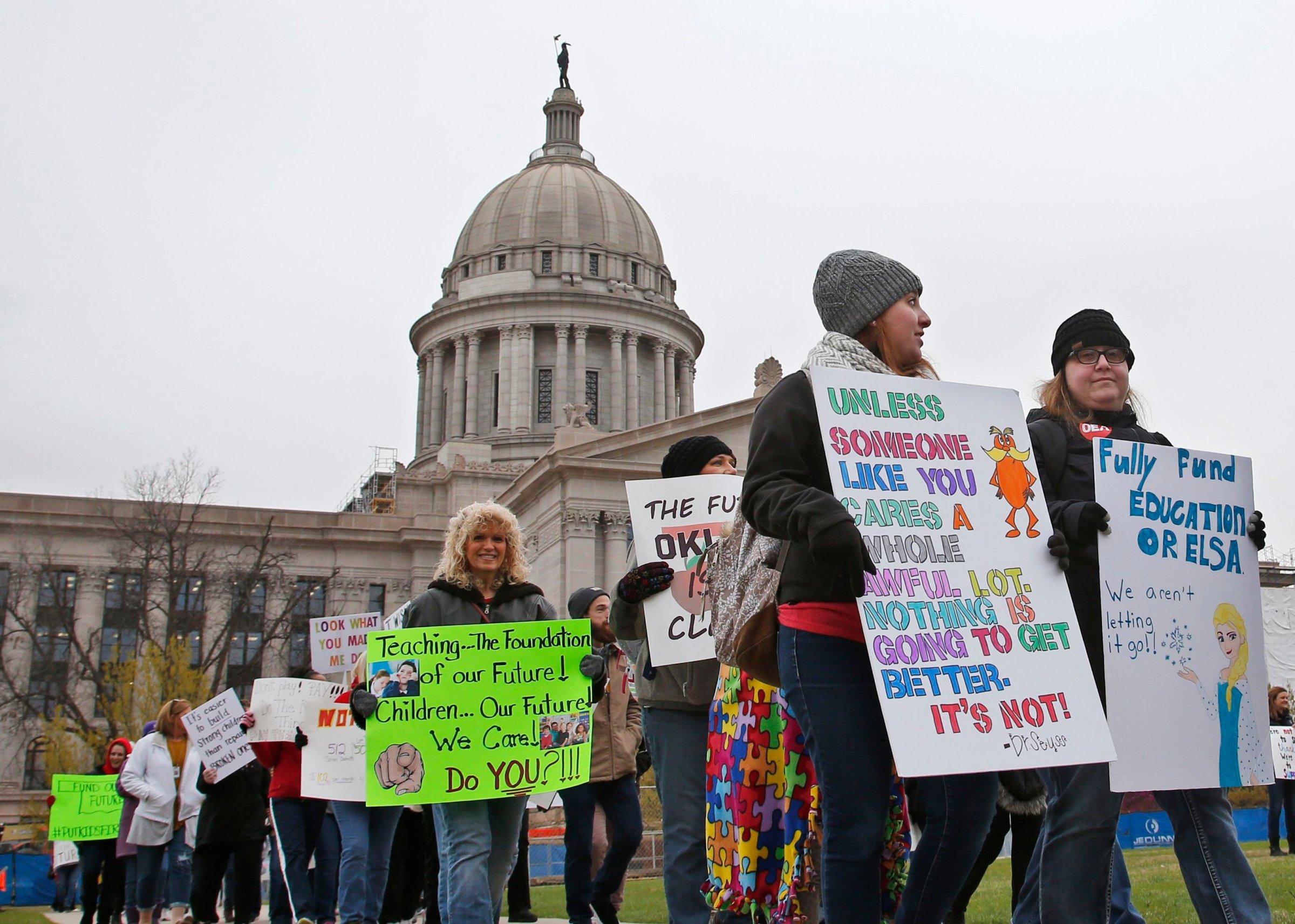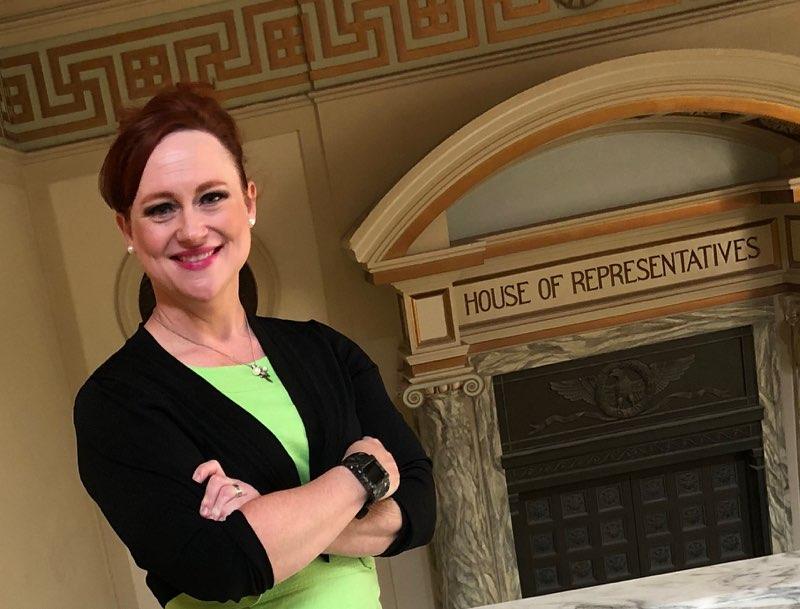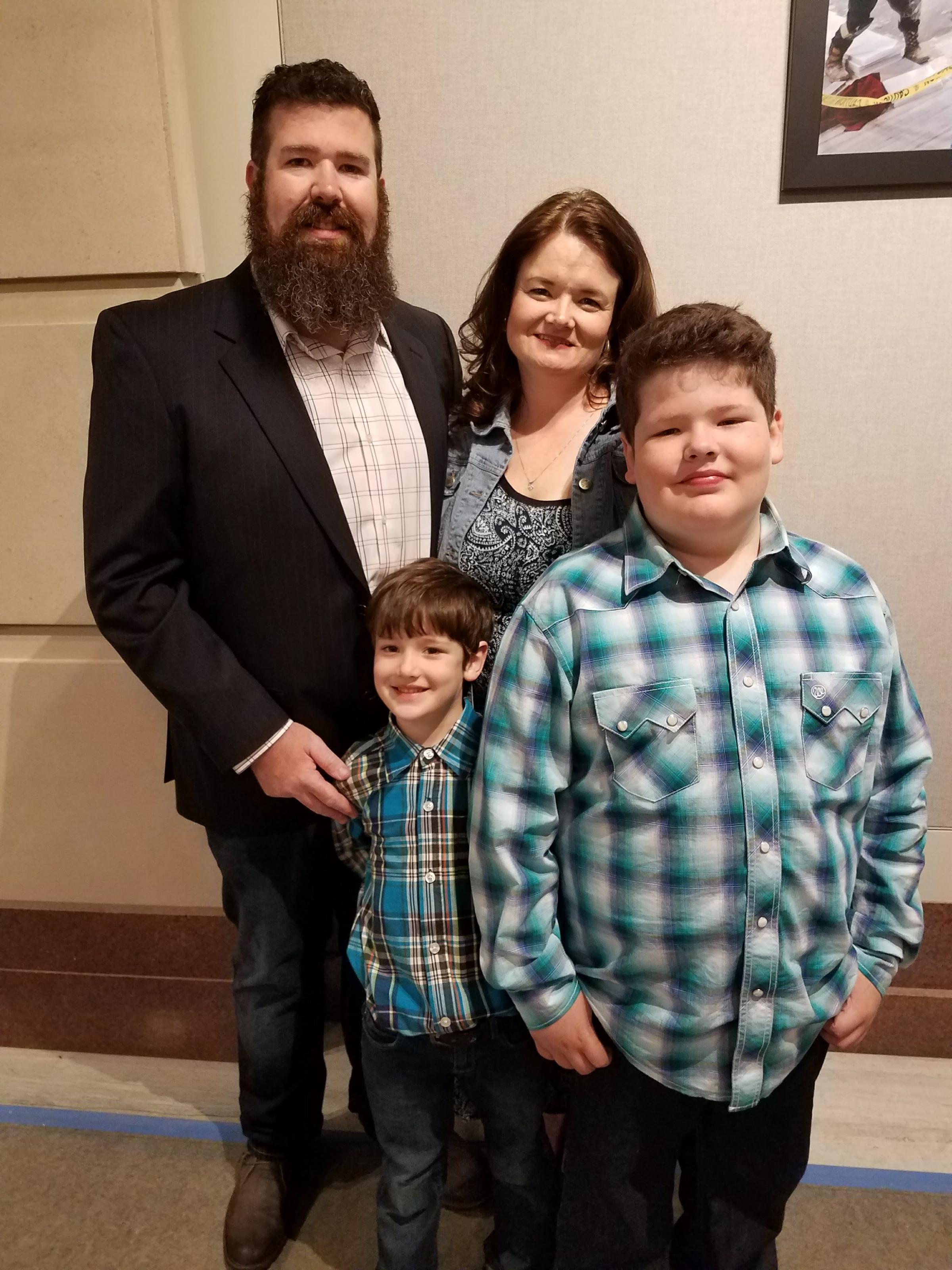
When Melanie Spoon, a middle-school librarian in Oklahoma City, showed up outside Republican state Rep. Mike Osburn’s office during the teacher strike last month, she planned to tell him how her budget for new books had been cut by more than half and how she hadn’t gotten a pay raise in 10 years. But, she said, Osburn wouldn’t meet with her, so Spoon — a Republican who voted for Osburn two years ago — decided to run against him.
“I am his constituent. I live in his district. I am his party, and I voted for him. Many of them would not let us in to their offices at first, and when they did, they would only let us speak for a few minutes,” Spoon said. “The last time they kind of shooed us out and shut the door in my face, I stood at the door and said, ‘I’m going to run against you because I will not ever treat another person like that.'”

The wave of teacher activism sweeping red states in the past few months isn’t stopping at strikes and protests. Frustrated with years of funding cuts and neglect for public education, dozens of teachers in traditionally Republican strongholds are taking matters into their own hands and running for office themselves. Most of the candidates are Democrats, but several are Republicans. And a handful of GOP-leaning educators are even challenging members of their own party as first-time candidates.
“If you’re not going to listen to me as a constituent, you’re going to listen to me as a candidate, and if I win, you’re for sure going to hear me as a legislator,” Spoon said.
Osburn said he does not remember Spoon visiting his office, but denies she would have been “shooed out.” He said he met with many other educators during the two-week walkout, the threat of which helped pressure lawmakers to pass a pay raise and increase the state education budget through the state’s first major tax hike in nearly 30 years. Osburn voted for the education increases.
“We didn’t get here overnight, and we certainly are not going to get out of it overnight, but I think we are moving in the right direction,” Osburn said. “Regardless of what happened before, the needle moved this time. And I think that’s largely due to the fact that a lot of people — a whole lot of my colleagues are very interested in making sure that we have the strongest public education system possible.”
Many teachers worry that once they’re not protesting at state capitols by the thousands, education funding will once again be relegated to the back-burner. That’s why Osburn is not alone among Republicans who are now facing primary challenges from educators. In states like West Virginia, Kentucky, Oklahoma — which rank low in teacher pay and per-student funding — many Republican educators have joined Democrats in calling for budget increases and tax hikes. In upcoming Kentucky primaries, high school teacher Travis Brenda is challenging Republican House Majority Leader Jonathan Shell, and social studies teacher Matt Anderson is challenging Republican state Rep. Regina Huff, who has a background as a special education teacher.
“I’m very disappointed in the lack of support for state employees and educators in our area and the whole state really. It’s become a national phenomenon that teachers are just under-appreciated,” said Charles Clark, an assistant principal in Olive Hill, Kentucky who is running in a Republican primary against incumbent state Rep. Jill York, who has held the seat since 2009.
“You can’t just continue to shaft your people and expect them to continue to vote for you,” Clark said. “We need somebody who’s going to stand up for all of our people and not just do what needs to be done to save face.”
York — who voted against a new pension plan signed into law last month, which includes less generous retirement benefits for new teachers — said she has supported public educators during her tenure, and she has been endorsed in the primary by the Kentucky Education Association. But she acknowledged that it would have been better if state leaders had focused on improving education funding and the state pension system a decade before the situation became so dire.
“It’s like you don’t know you’ve got a fire until someone pulls the alarm,” she said.
Clark is among at least 40 educators running for office in Kentucky this year. Scott Lewis, superintendent of Ohio County Schools in Hartford, Kentucky and a Republican running for the Kentucky House, said he has been frustrated since August, when state leaders began discussing changes to the education budget and the pension plan. It was the start of what Lewis describes as an “all-out attack this year on public educators from the Governor on down.”
“That was the tipping point. Public education is the backbone of everything in your state — a better educated workforce, [better] economy. Businesses that want to come here want to know what kind of schools you have,” said Lewis, who is campaigning for a seat left vacant as the Republican incumbent runs for state Senate. “If we’re going to grow this state, we need to have a focus on public education.”
Dismissive comments made last August by Kentucky Gov. Matt Bevin about teachers walking out over pension changes were enough to make Paula Setser-Kissick, a resource teacher for Fayette County Public Schools and a lifelong Republican, change her party affiliation. She’s now running for the state Senate as a Democrat. “I kept thinking somebody else was going to step up and I kept waiting, and nobody had entered to run,” she said. “I realized that if I don’t step up, who’s going to do it?”

Carrie Pugh, national political director for the National Education Association (NEA), the nation’s largest teachers union, said there are more NEA members running for office now than there have been in the last two decades.
In 2015, the NEA started building a campaign training program for educators, gearing it toward prospective candidates for school boards and city councils. But they’re now adapting the curriculum because teachers have shown a much greater interest in state legislative seats. Pugh said she has received applications from about 150 teachers in nearly 30 states — mostly Democrats, but some Republicans too — who want to attend the NEA’s first large candidate training this month.
Some campaign tasks — such as researching issues, speaking to groups of people and making posters — have come easier to teachers who are already used to splitting their time with a second job and using their own money to buy school supplies. Casey Satterlee, a Republican candidate in a crowded primary for a seat in the Oklahoma state House left vacant by a term-limited incumbent, has been a teacher for 14 years. He and his wife, who is also a teacher, have picked up coaching and tutoring jobs and administered standardized tests, pursuing any opportunities for supplemental income. “My wife and I have essentially had the same pay since we started teaching,” he said. “In that time, we’ve gotten married, bought a house, had two children, but nothing’s changed about our pay.”
Satterlee agrees with the GOP on many issues, but unlike many Republicans, he wants to change tax policy in the state in order to boost funding for education and other public services. “Taxes are low in Oklahoma, and I know it’s not a popular answer to anything, but I do think there are some adjustments we can make to our taxes that would increase the revenue,” he said. “I think most of it needs to come from big business … but we’re all going to have to step up as a community to fix our state.”
Spoon, the librarian in Oklahoma City, thinks too many lawmakers self-describe as “pro-education” to appease constituents, but do little to support teachers and students if it means breaking from the party line.
“If you’re that pro-education, you’re not going to sit there in your suit and tie — or bow tie — and let things slide,” Spoon said. “If it were me, I’m going to vote on what’s best for kids, and if that means breaking ranks with my party, absolutely, I will go against the grain with a hard double brush.”
More Must-Reads from TIME
- Donald Trump Is TIME's 2024 Person of the Year
- Why We Chose Trump as Person of the Year
- Is Intermittent Fasting Good or Bad for You?
- The 100 Must-Read Books of 2024
- The 20 Best Christmas TV Episodes
- Column: If Optimism Feels Ridiculous Now, Try Hope
- The Future of Climate Action Is Trade Policy
- Merle Bombardieri Is Helping People Make the Baby Decision
Write to Katie Reilly at Katie.Reilly@time.com